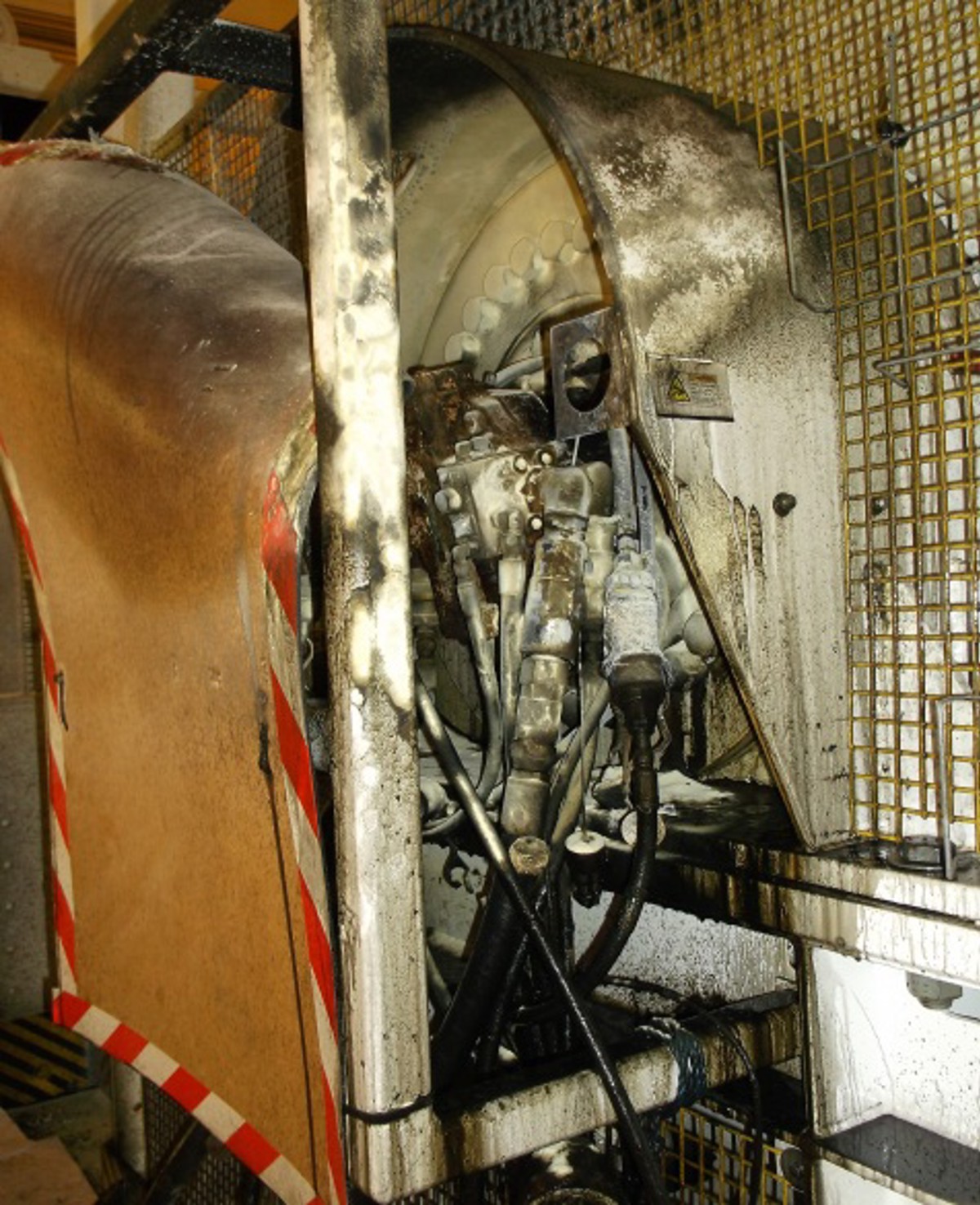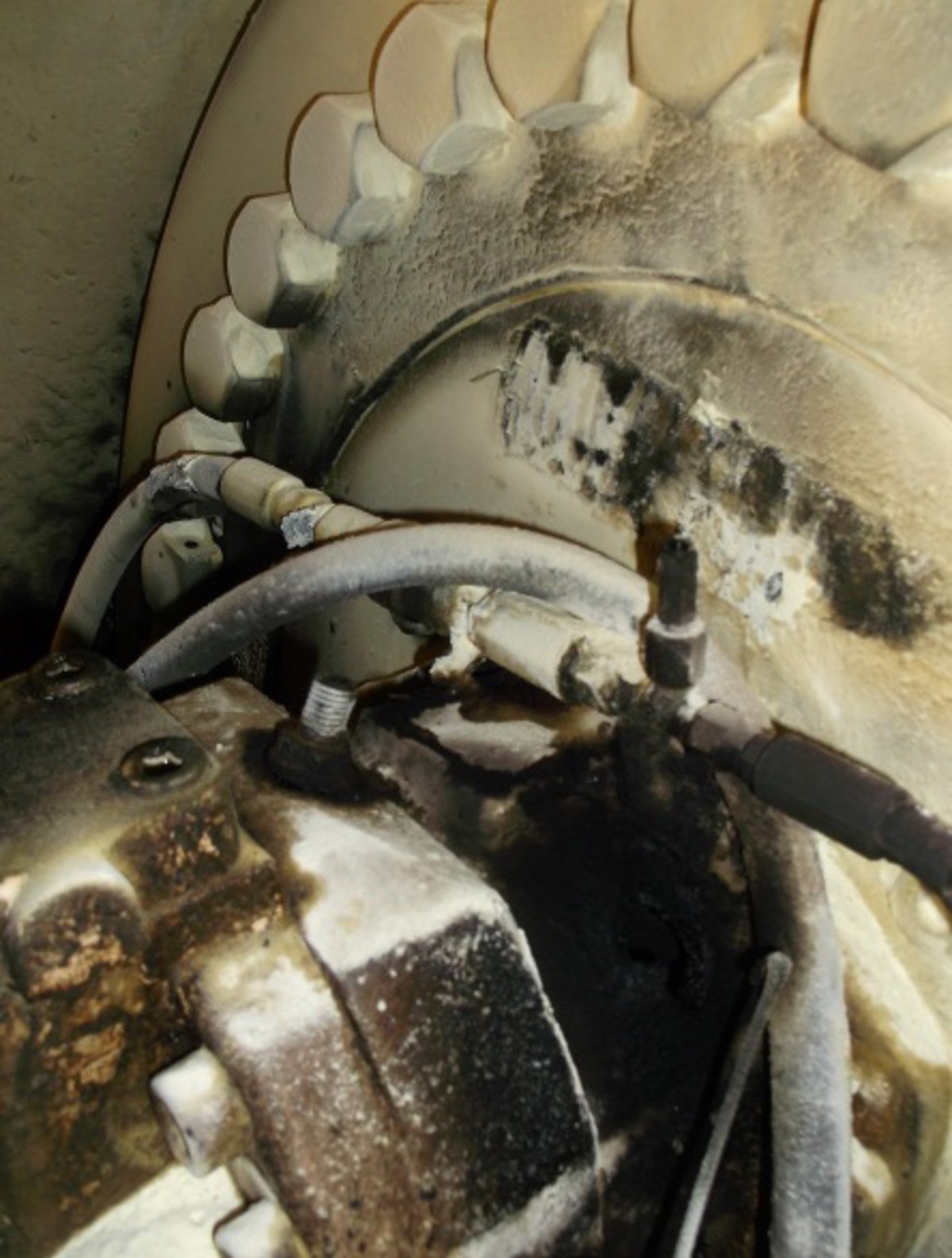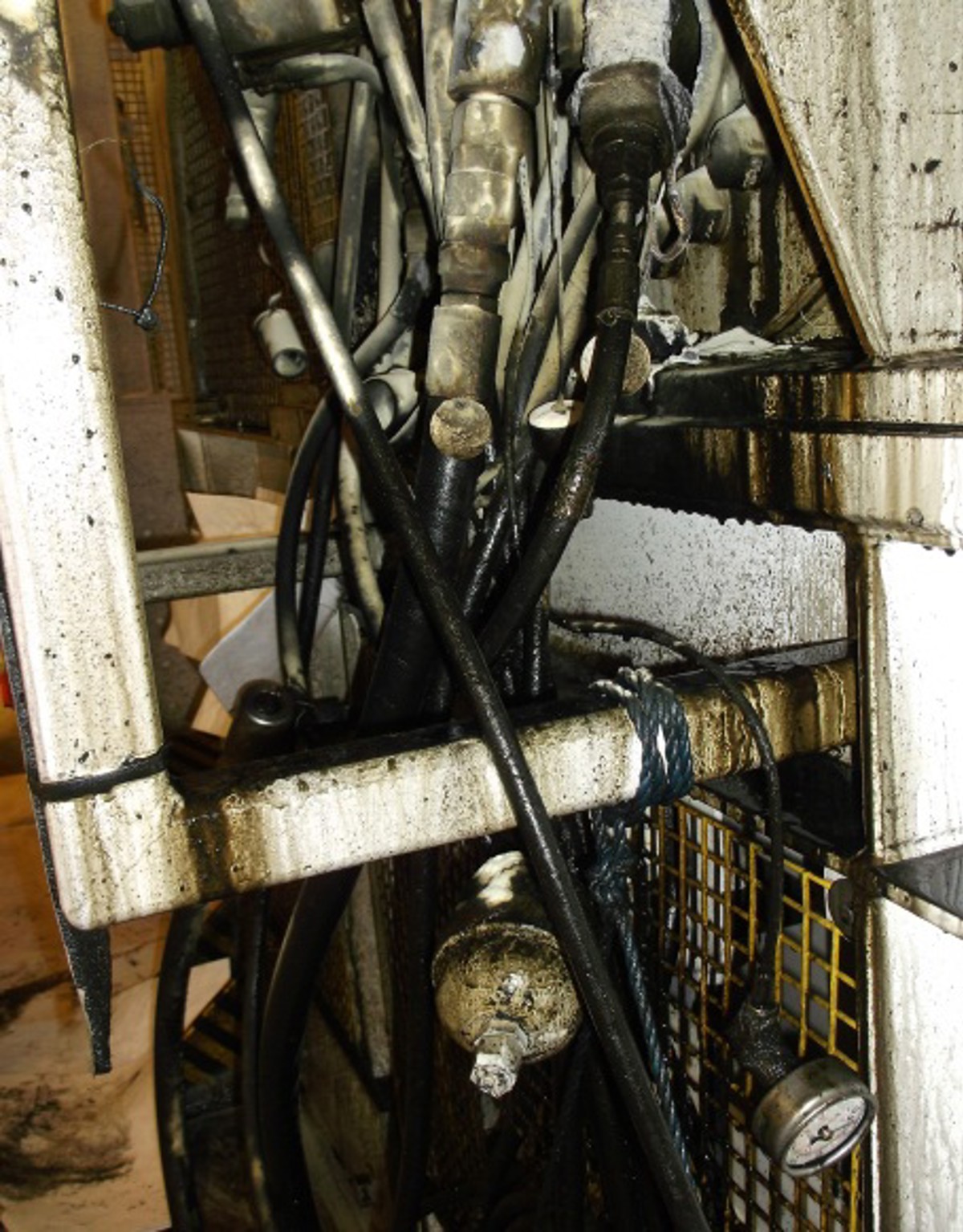MSF: Routine task – Badly cut finger changing mop head
- Safety Flash
- Published on 2 April 2015
- Generated on 17 April 2025
- IMCA SF 05/15
- 3 minute read
Jump to:
The Marine Safety Forum has published a safety flash regarding an incident in which someone suffered a painful cut to the finger whilst engaged in a ‘routine’ cleaning task.
The crew member was in the process of changing a sponge mop head. Whilst attempting to fit a new mop head he saw that one of the retaining channels had glue in it which was preventing it from fitting the holder. He tried to clear out the glue with his pocket knife and in doing so he slipped and sustained a cut to the left index finger. The cut was quite deep, partially severing the flexor tendon and damaging the associated nerve. A surgery was required to repair the damage.
The incident highlights failure to manage change properly. The injured person deviated from the original intent to carry out ‘routine’ cleaning duties, and instead attempted to fix a new problem with the mop head with the tools and facilities to hand, without recognizing the inherent risks of the new task.
Members may wish to refer to the following similar incidents (key words: knife slipped):
- Lost time injury (LTI): Severed tendon
- Finger and hand injuries

winch motor after fire

winch motor after fire

winch motor after fire
Findings
Our member’s investigation noted the following:
- A preliminary on-site investigation of the failure by the manufacturer was conducted with no conclusive root causes identified. The failed winch brake was shipped to the manufacturer for a detailed analysis to determine root cause(s).
- Following extensive testing and analysis, the manufacturer identified the most likely root cause of the run-off was probably a blockage in the winch secondary brake release line.
- Given the damage to the winch the incident investigation could not determine a definitive root cause but were able to establish through elimination a probable cause for the occurrence. A series of actions to prevent occurrence had been established these were included in the manufacturer’s technical bulletin.
Actions
The following actions were taken:
- The manufacturer released a service bulletin to all operators of winches with this type of brake advising them of two checks to perform to prevent recurrence:
- One check, the Brake Release Line Check, verifies that the release pressure was dropping in the specified time and should be performed every time the brake release line or hydraulic power unit (HPU) controls were serviced.
- The second check, the Motor-to-Brake Load Transfer Check, verifies that the load has fully transferred from the hydraulic motor to the fail-safe brake and should be performed before the HPU was purposely shut down while the winch is under load.
- One check, the Brake Release Line Check, verifies that the release pressure was dropping in the specified time and should be performed every time the brake release line or hydraulic power unit (HPU) controls were serviced.
Members may wish to refer to the following similar incidents (key words: winch, brake, failure):
- Failure of ROV lift umbilical winch brake
- Fatal incident onboard a dive support vessel
Related safety flashes
-
IMCA SF 05/13
4 April 2013
-
IMCA SF 06/10
27 September 2010
IMCA Safety Flashes summarise key safety matters and incidents, allowing lessons to be more easily learnt for the benefit of the entire offshore industry.
The effectiveness of the IMCA Safety Flash system depends on the industry sharing information and so avoiding repeat incidents. Incidents are classified according to IOGP's Life Saving Rules.
All information is anonymised or sanitised, as appropriate, and warnings for graphic content included where possible.
IMCA makes every effort to ensure both the accuracy and reliability of the information shared, but is not be liable for any guidance and/or recommendation and/or statement herein contained.
The information contained in this document does not fulfil or replace any individual's or Member's legal, regulatory or other duties or obligations in respect of their operations. Individuals and Members remain solely responsible for the safe, lawful and proper conduct of their operations.
Share your safety incidents with IMCA online. Sign-up to receive Safety Flashes straight to your email.